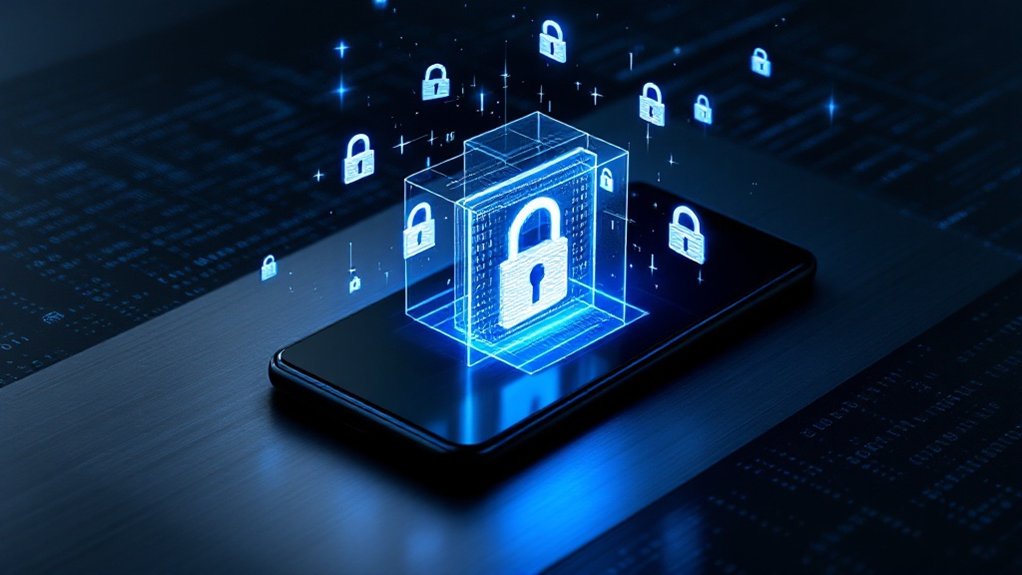Maintaining online anonymity requires implementing multiple security layers through crucial digital tools and practices. VPNs create encrypted tunnels to mask IP addresses, whereas the Tor browser routes traffic through multiple servers for improved privacy. Password managers, two-factor authentication, and end-to-end encrypted messaging apps provide additional protection against unauthorized access. Regular clearing of browser histories, careful social media sharing, and privacy-focused search engines further bolster digital security. These fundamentals serve as a foundation for deeper privacy protection strategies.

In an increasingly interconnected digital world, maintaining online anonymity has become a significant concern for individuals seeking to protect their privacy and personal information. Security experts highlight the foundational importance of utilizing Virtual Private Networks (VPNs), which create encrypted tunnels for internet traffic during the masking of users’ IP addresses from potential surveillance. Virtual machines can provide an isolated environment for conducting sensitive research without leaving traces on the main system.
Privacy protection in today’s digital landscape demands robust solutions like VPNs to shield personal data from unwanted surveillance and tracking.
This technology effectively prevents Internet Service Providers from monitoring online activities and circumvents geographical restrictions that might otherwise limit access to content. Services like Domains By Proxy offer additional protection by helping users register domain names anonymously. Leading providers like ExpressVPN maintain vast server networks worldwide to ensure reliable and fast-encrypted connections.
The implementation of anonymous browsing tools represents another essential layer of protection for privacy-conscious users. The Tor browser, particularly designed for anonymous web surfing, routes internet traffic through multiple servers to obscure its origin, whereas private browsing modes and cookie management tools help minimize digital tracking.
Regular clearing of browser histories and caches, combined with the use of privacy-focused search engines like DuckDuckGo, considerably reduces the accumulation of trackable data.
Password security serves as a significant defense against unauthorized access, with experts recommending the use of password managers to generate and store complex, unique credentials for each online account. The addition of two-factor authentication provides an extra security layer, whereas regular password updates help maintain account integrity.
These measures work in conjunction with careful management of personal information sharing, particularly on social media platforms where oversharing can lead to increased vulnerability.
Secure communication channels play a critical role in maintaining digital privacy, with end-to-end encrypted messaging apps and secure email services providing protected channels for sensitive communications.
Users must additionally maintain vigilance over their devices and data through regular software updates, strong antivirus protection, and implementation of full-disk encryption.
The careful management of one’s digital footprint, including regular monitoring of online presence and the use of privacy protection services, helps maintain long-term anonymity.
These combined measures, when implemented consistently, create a thorough framework for protecting personal privacy in the digital age.
Frequently Asked Questions
Can I Remain Completely Anonymous While Using Social Media Platforms?
Complete anonymity on social media platforms remains virtually impossible because of sophisticated tracking methods, data collection practices, and platform requirements.
Although users can implement multiple privacy measures, including VPNs, pseudonyms, and strict privacy settings, digital footprints persist through IP addresses, device fingerprinting, and behavioral patterns.
Technical solutions combined with careful information sharing can greatly improve privacy, but absolute anonymity faces persistent technological and practical limitations.
How Often Should I Change My VPN Service Provider?
The ideal frequency for changing VPN providers varies based on individual security needs and threat assessments. Whereas some cybersecurity experts recommend switching every 6-12 months, most users can maintain adequate privacy with less frequent changes.
Key factors influencing change frequency include provider transparency, security incidents, service quality, and policy modifications. Users should monitor their current provider’s performance and industry developments to determine appropriate switching intervals.
Do Privacy-Focused Browsers Affect Browsing Speed and Performance?
Privacy-focused browsers can affect browsing speed and performance in varying ways.
Although extensions typically don’t degrade performance, and some even improve it by blocking unwanted content, certain privacy features may impact system resources.
Browsers like Tor, which routes traffic through multiple servers, can slow connections considerably.
Conversely, ad-blocking capabilities often boost page load times and reduce data usage as they protect against malware threats.
Are Paid Anonymity Tools Always Better Than Free Alternatives?
Paid anonymity tools typically offer superior performance, security, and features compared to free alternatives, though exceptions exist.
Whereas premium services provide faster speeds, verified no-logs policies, and advanced functionality like split-tunneling, some free options maintain high standards.
Key differentiators include server network size, encryption strength, and technical support quality.
The choice eventually depends on specific privacy needs, required features, and acceptable performance levels.
What Should I Do if My Anonymous Identity Is Compromised?
When an anonymous identity is compromised, immediate disconnection from all online accounts and networks is essential.
Users should change passwords across platforms using a secure device, activate two-factor authentication, and review recent activity logs.
Documenting evidence, notifying relevant authorities, and implementing improved security measures, such as VPNs and encrypted communication tools, help prevent further exposure.
Professional reputation management services can assist with removing compromised content and rebuilding online presence securely.









